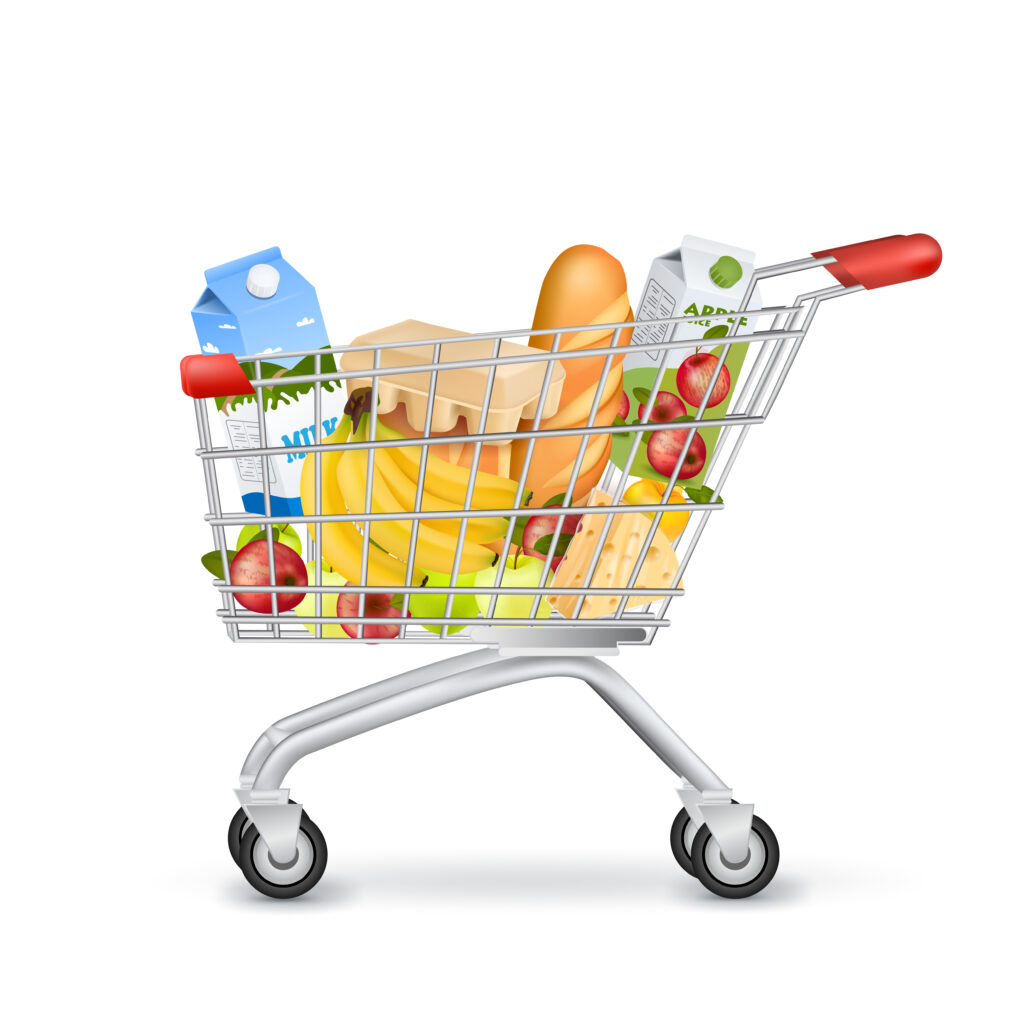
Nigeria’s Fast-Moving Consumer Goods (FMCG) sector is a highly competitive and dynamic market vital to the nation’s economy, employment, and daily life. Driven by a large, urbanizing population and evolving consumer preferences (balancing price sensitivity with demand for quality, convenience, and local/healthy options), understanding its key players offers insights into consumer trends and market dynamics. Effective distribution networks, spanning urban and rural areas, are crucial for success. The market features intense competition between local and international companies, who constantly innovate and strategize on branding, pricing, and marketing to gain market share.
Join us as we explore these market leaders who are shaping Nigeria’s consumer landscape. We’ll examine their flagship brands, distribution strategies, and how they’re adapting to evolving consumer preferences while maintaining competitive advantages. Whether you’re an investor, marketer, or business strategist, this comprehensive guide reveals the companies driving Nigeria’s consumer economy and the strategies behind their market dominance.
Understanding Nigeria’s FMCG Market Dynamics
Nigeria’s FMCG market operates within a complex ecosystem where success depends on understanding diverse consumer segments ranging from price-sensitive rural populations to quality-conscious urban consumers. We’ve observed that winning companies excel at balancing affordability with quality while maintaining consistent availability across the country’s challenging distribution landscape.
The market is characterized by intense competition between established multinational corporations and emerging local players, each leveraging different strategies to capture market share. Multinational companies typically bring global expertise and established brand equity, while local companies excel at understanding cultural nuances and developing products specifically for Nigerian tastes and budgets.
Top 10 FMCG Companies in Nigeria at a Glance
| Rank | Company | Key Categories | Popular Brands |
| 1 | Nestlé Nigeria Plc | Food & Beverages | Maggi, Milo, Nescafé, Golden Morn |
| 2 | Nigerian Breweries Plc | Alcoholic & Non-alcoholic Beverages | Star Lager, Gulder, Heineken |
| 3 | Guinness Nigeria Plc | Beverages | Guinness Stout, Malta Guinness, Harp |
| 4 | Unilever Nigeria Plc | Personal Care, Home Care, Food | Omo, Lux, Knorr, Lipton |
| 5 | PZ Cussons Nigeria Plc | Personal Care, Home Care | Premier, Canoe, Robb |
| 6 | Dangote Group (FMCG) | Food Staples | Dangote Sugar, Dangote Flour |
| 7 | Promasidor Nigeria Limited | Dairy & Seasonings | Cowbell, Loya, Onga |
| 8 | Seven-Up Bottling Company Ltd | Soft Drinks & Water | 7UP, Pepsi, Mirinda, Aquafina |
| 9 | FrieslandCampina WAMCO | Dairy Products | Peak Milk, Three Crowns |
| 10 | Flour Mills of Nigeria Plc | Food Processing | Golden Penny flour, pasta |
We’ve identified these companies as Nigeria’s FMCG leaders based on their market share, brand recognition, distribution reach, and impact on consumer daily life. Each brings unique strengths to the competitive landscape while addressing fundamental consumer needs across multiple categories.
1. Nestlé Nigeria Plc: The Food and Beverage Giant
Nestlé Nigeria stands as the undisputed leader in Nigeria’s food and beverage FMCG sector. We’ve analyzed their success model and found it built on a foundation of iconic brands that have become household staples across the country. Maggi seasoning cubes, Milo chocolate drink, Nescafé instant coffee, and Golden Morn cereal represent more than products – they’ve become integral parts of Nigerian food culture.
Their manufacturing infrastructure spans multiple locations across Nigeria, ensuring consistent product availability and quality control. What particularly impresses us about Nestlé is their ability to adapt global products to local tastes while maintaining international quality standards. Their innovation in packaging sizes and pricing strategies makes their products accessible across different economic segments.
2. Nigerian Breweries Plc: Dominating the Beverage Landscape
Nigerian Breweries has established itself as the undisputed leader in Nigeria’s beer market through strategic brand portfolio management and exceptional distribution capabilities. We’ve tracked their market evolution from a single brewery to a nationwide operation producing beloved brands like Star Lager, Gulder, Heineken, and Life Continental Lager.
Their success stems from understanding that Nigerian consumers value both international brand prestige and local relevance. Star Lager, in particular, has achieved iconic status by positioning itself as authentically Nigerian while maintaining premium quality standards. Their investment in multiple breweries across different regions ensures fresh products reach consumers quickly while reducing distribution costs.
3. Guinness Nigeria Plc: Heritage Meets Innovation
Guinness Nigeria represents the perfect blend of international heritage and local market understanding. We’ve observed how they’ve successfully maintained the premium positioning of their flagship Guinness Foreign Extra Stout while expanding into accessible categories with Malta Guinness and other offerings that cater to broader consumer segments.
Their brand strategy demonstrates sophisticated market segmentation, offering products for different occasions, demographics, and price points without diluting their core brand equity. The company’s long history in Nigeria has built tremendous consumer trust and brand loyalty that newer entrants struggle to replicate.
4. Unilever Nigeria Plc: Personal Care and Beyond
Unilever Nigeria has built an impressive portfolio spanning personal care, home care, and food categories with brands that address fundamental daily needs. We’ve analyzed their success across categories like laundry (Omo, Sunlight), personal hygiene (Lux, Lifebuoy, Pears), and food enhancement (Knorr, Lipton), finding consistent excellence in understanding consumer priorities.
Their strength lies in product innovation that addresses specific Nigerian needs – from developing detergents that work effectively in local water conditions to creating personal care products suitable for the tropical climate. Their commitment to sustainability and social impact resonates strongly with Nigeria’s increasingly conscious consumers.
5. PZ Cussons Nigeria Plc: Local Market Expertise
PZ Cussons Nigeria exemplifies how deep local market understanding can create sustained competitive advantages. We’ve been impressed by their ability to develop products that precisely match Nigerian consumer preferences, price sensitivities, and usage patterns across personal care and home care categories.
Premier soap has achieved iconic status in Nigeria’s personal care market by combining quality with affordability, while Canoe detergent addresses specific laundry challenges faced by Nigerian households. Their Robb insecticide line demonstrates how companies can succeed by addressing uniquely local needs that international players might overlook.
6. Dangote Group (FMCG Divisions): Industrial Scale Impact
Dangote Group’s FMCG operations represent the power of industrial scale combined with local market focus. We’ve observed how their massive production capabilities in sugar refining, flour milling, and other food processing create significant competitive advantages through cost efficiency and consistent supply availability.
Dangote Sugar Refinery and Dangote Flour Mills have become essential components of Nigeria’s food supply chain, providing affordable staples that reach consumers across all economic segments. Their scale enables them to maintain competitive pricing while ensuring widespread availability – critical factors in Nigeria’s price-sensitive market.
7. Promasidor Nigeria Limited: Quality Food Innovation
Promasidor has carved a unique niche in Nigeria’s competitive food market by focusing on quality, nutrition, and affordability. We’ve analyzed their success with brands like Cowbell milk powder, Loya milk, and Onga seasoning, finding consistent excellence in addressing fundamental nutritional needs while maintaining accessible pricing.
Their approach to brand building emphasizes product benefits and nutritional value, appealing to health-conscious consumers without compromising on taste or affordability. Cowbell, in particular, has achieved remarkable success by positioning itself as both nutritious and delicious – a difficult balance in the competitive dairy market.
8. Seven-Up Bottling Company Ltd: Refreshment Market Leadership
Seven-Up Bottling Company has established dominance in Nigeria’s competitive soft drinks market through strategic brand management and exceptional distribution capabilities. We’ve tracked their success with 7UP, Pepsi, Mirinda, and Aquafina, finding each brand carefully positioned to address different consumer preferences and occasions.
Their distribution network represents one of the most sophisticated in Nigeria’s FMCG sector, ensuring cold beverages reach consumers even in remote locations. This distribution excellence, combined with consistent marketing that emphasizes refreshment and enjoyment, has built strong consumer loyalty across their brand portfolio.
9. FrieslandCampina WAMCO Nigeria Plc: Dairy Excellence
FrieslandCampina WAMCO has built a commanding position in Nigeria’s dairy market through consistent quality and nutrition-focused marketing. We’ve observed how Peak Milk and Three Crowns have become synonymous with quality dairy nutrition in Nigerian households, achieving trust levels that competitors struggle to match.
Their approach to market development includes supporting local dairy farming initiatives, creating a sustainable supply chain that benefits both the company and Nigerian agriculture. This commitment to local development resonates strongly with consumers who increasingly value companies that contribute positively to their communities.
10. Flour Mills of Nigeria Plc: Essential Food Processing
Flour Mills of Nigeria plays a critical role in Nigeria’s food supply chain through their extensive milling and processing operations. We’ve analyzed their success with Golden Penny flour, pasta, and other staple products, finding their strength lies in consistent quality and widespread availability of essential food ingredients.
Their position in the food processing sector gives them unique insights into consumer cooking patterns and preferences, enabling product development that meets real kitchen needs. Their Golden Penny brand has achieved strong recognition among both household consumers and commercial food processors.
In conclusion, Nigeria’s top FMCG companies represent the backbone of the country’s consumer economy, providing essential products while driving employment, industrial development, and economic growth. Their success stems from understanding Nigerian consumers deeply while maintaining operational excellence across complex distribution networks.
At Socialander, we’re committed to helping FMCG companies strengthen their market positions through strategic digital marketing, consumer engagement, and brand development services. Our expertise in Nigeria’s consumer landscape enables FMCG companies to build stronger connections with their target audiences, optimize their digital presence, and navigate the evolving competitive environment that defines success in Nigeria’s dynamic consumer goods market
FAQ
What makes Nigeria’s FMCG market unique compared to other African markets? Nigeria’s FMCG market is distinguished by its massive consumer base of over 200 million people, diverse economic segments requiring different product positioning strategies, complex distribution challenges across varied geography, and strong preference for locally-relevant products that maintain international quality standards.
How do successful FMCG companies manage distribution across Nigeria’s challenging infrastructure? Leading FMCG companies succeed through multi-tier distribution strategies involving regional distributors, local wholesalers, and extensive retail networks. They invest in their own logistics capabilities, partner with specialized distribution companies, and use technology to optimize routes and inventory management across diverse market conditions.
What role does digital marketing play in Nigeria’s FMCG sector? Digital marketing has become essential for FMCG success in Nigeria, enabling companies to reach younger consumers, build brand awareness cost-effectively, gather consumer insights, support traditional retail partners, and create direct consumer relationships through social media engagement and e-commerce platforms.
How are Nigerian consumers’ preferences changing the FMCG landscape? Nigerian consumers are increasingly prioritizing health and wellness, sustainability, convenience, and value for money. This is driving FMCG companies to innovate with natural ingredients, sustainable packaging, convenient formats, and products that offer clear functional benefits while remaining affordable to diverse consumer segments.





